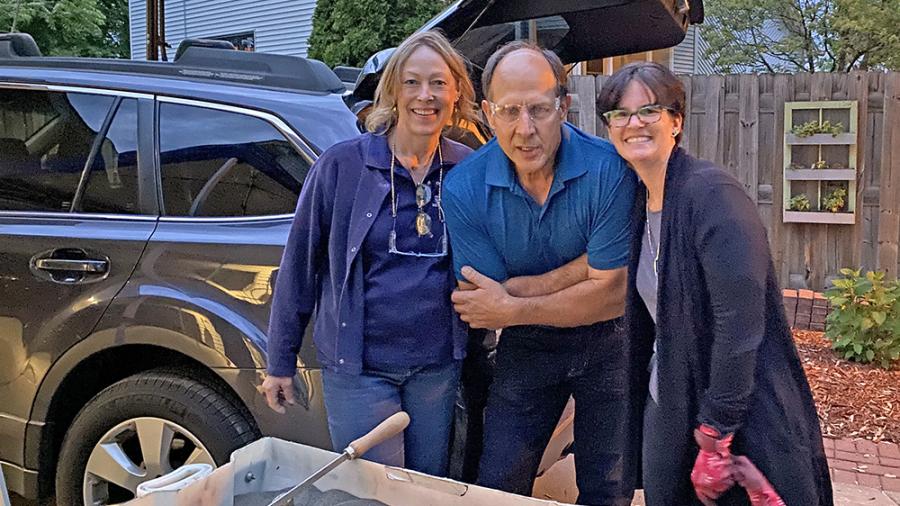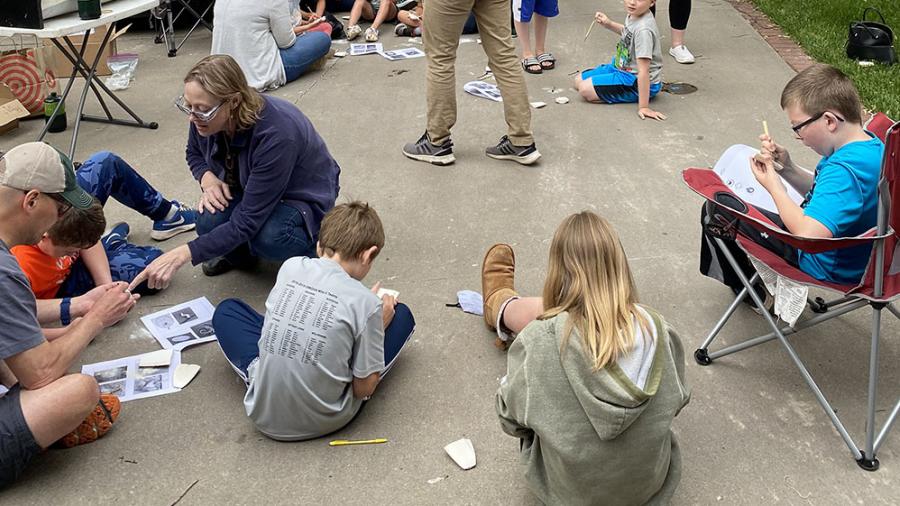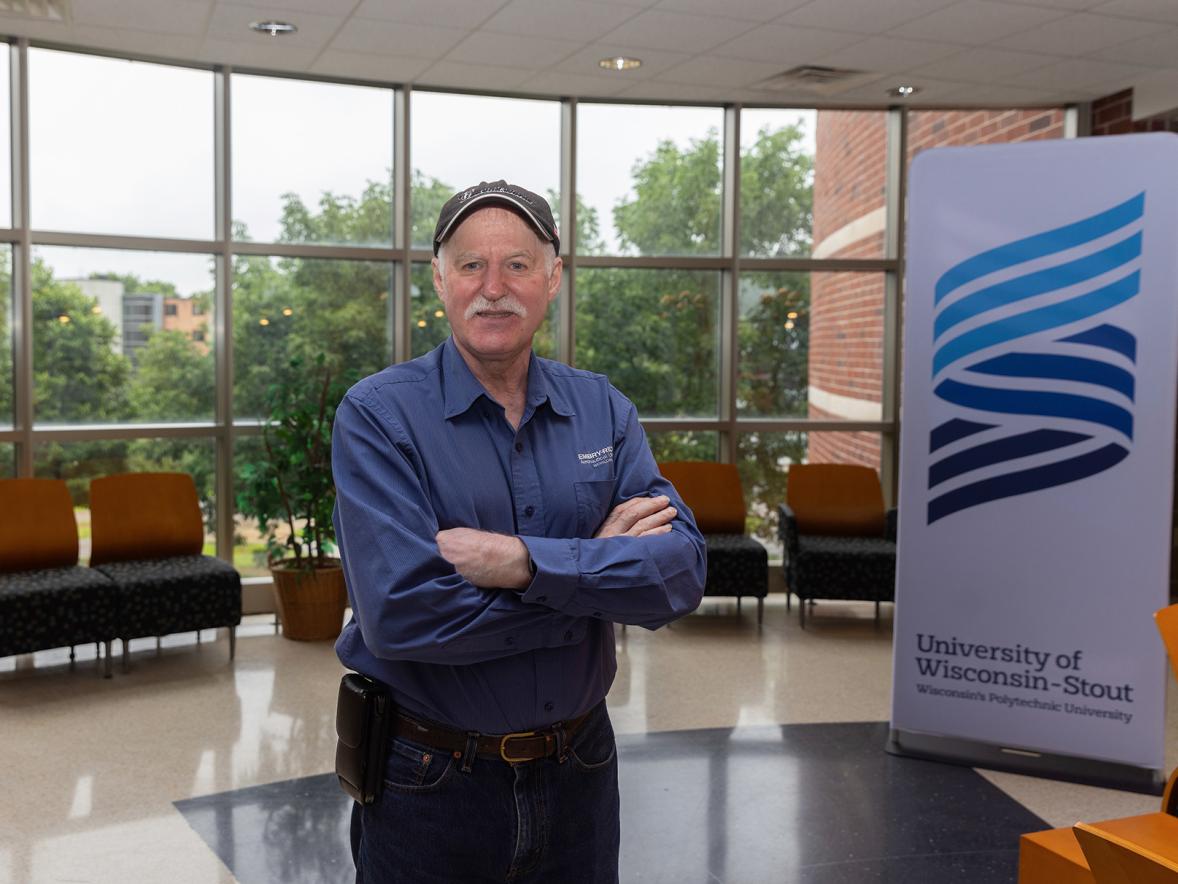Students in Maple Grove, Minn., recently learned the art of cuttlefish bone mold metal casting and about STEM opportunities, particularly for women, as part of a project by three University of Wisconsin-Stout educators.
Physics Professor Jo Hopp, Brenda Puck, a senior lecturer in engineering and technology, and Professor Brian Finder, operations and management and M.S. risk control and safety management program director, visited Maple Grove Senior High in the spring. They met with members of the Women in Science Health club, a group whose goal is to encourage young women to pursue careers in science, technology, engineering, mathematics and health care.
Hopp and Puck shared some of their experience as women in STEM with the students.

“We also shared the importance of allies and how allies can help support the work we do,” Hopp said. “We empower others and others empower us. When you have diversity, you can do so much more.”
The students learned about process, materials and metal casting. Each of them carved a mold of their own in a cuttlefish bone and then poured molten tin into the mold to cast their creation. Students were able to keep their mold and cast and share it with others.
It was the club’s first in-person meeting this year, said Zoe Carter, a junior at the school, who plans to pursue a career in biomedical engineering.
“That made it even more special for our group,” she said. “All of the UW-Stout staff were super welcoming. You could tell they were very passionate about what they were talking about. They were doing everything they could to make sure that we were having fun, and they succeeded.”

After meeting with students involved with WISH, Hopp, Puck and Finder presented to a neighborhood in Maple Grove, where Hopp lives, and did Casting in a Cul-de-Sac, sharing science with children and their parents. “It was mobile and accessible. It was just a cool experience,” Hopp said.
“The adults were just as excited as the kids. It was a positive way for people to engage with their community, share a new experience with each other and was very fulfilling for us. After such a long time apart, science outreach was a wonderful way to bring people together,” Hopp said.
Between the two activities, about 20 students ages five to 20 participated, Hopp said, noting parents and teachers also took part.
Puck said collaboration is key in STEM programs as well as having role models, mentors and peers. Hands-on experiences help engage and empower students, encouraging them to expand their learning.
“We are in mid-2021 and women are over 50% of the workforce and population, and we are still struggling to get women involved in STEM-related disciplines,” Puck said. “Some of it is work-life balance, some of it is not finding supportive advocates and finding their place. If you look at the history of women in technology, engineering and science, they didn’t have a place at the table.”

The goal is also to empower students to explore and be curious, Hopp said.
Finder said his favorite part is when students share with others what they learned during the casting. “To me, I enjoy teaching students and then they go out and are the teachers,” he noted.
Support for the event came from the UW-Stout Outreach Collaborative grant sponsored by Xcel Energy.
UW-Stout had a summer camp for girls in 6th and 7th grades called Science, Technology, and Engineering Preview Summer Camp (STEPS) from 1997 to 2019. The goal of the camp was to build confidence and inspire young women by structuring their participation in STEM-related activities.
Carter, who participated in STEPS, said it is important for girls to learn about STEM fields “to show that they are capable of doing whatever they want, no matter what society might say.”






